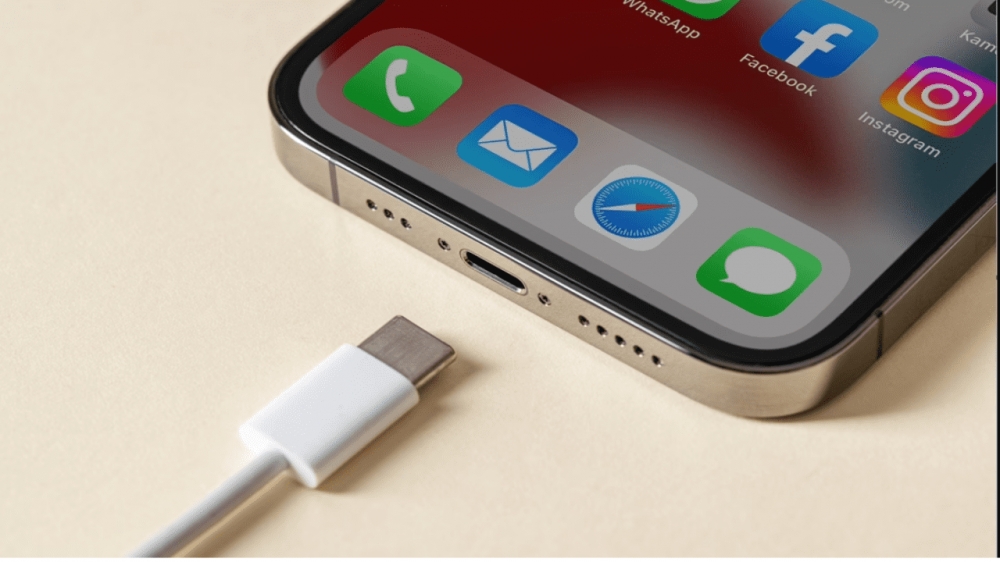Why is Apple switching to USB-C? It's more complicated than you might think
- Apple has confirmed that iPhones will use USB-C instead of Lightning connector due to new EU regulations.
- USB-C is already standard on other electronics and will be required on all phones sold after autumn 2024.
- Apple previously resisted switching due to concerns about stifling innovation and creating e-waste.
- Apple will comply with the regulations, but argues it would have been better to not have a government mandate.
- iPhone 15 or its follow-up expected to be the first to use the USB-C connector.
- Lightning/USB 2.0 speeds limited to iPhone 15 and iPhone 15 Plus, faster transfer speeds exclusive to Pro models.
Apple has confirmed that its iPhones will no longer use the Lightning connector following the announcement of new EU regulations requiring all smartphones to have USB charging as standard. The new rules state that all phones sold after autumn 2024 must use the USB-C connector, which is already standard on other electronics. Apple has already introduced USB-C in much of its product range, with its first laptop to use USB-C for charging being the 12in MacBook in 2015, and iPads switching to USB-C in 2018.
However, the company had previously resisted switching its phones to the standard, citing concerns that mandating one type of connector would stifle innovation rather than encourage it, which could harm consumers in Europe and worldwide. Those in favour of the Lightning connector have pointed to its smaller size and the range of Lightning-based adapters and accessories owned by users around the world, which could create more e-waste.
 Image credit: WIRED
Apple's head of marketing, Greg “Joz” Joswiak, confirmed that the company will comply with the new regulations, but argued that it "would have been better environmentally and better for our customers to not have a government be that prescriptive." He refused to answer questions about timing or whether Apple would try to make USB-C iPhones exclusive to the EU, but it is likely that either the iPhone 15, expected in September 2023, or its follow-up, expected in September 2024, will be the first to use the connector. “The Europeans are the ones dictating timing for European customers,” Joswiak added.
Image credit: WIRED
Apple's head of marketing, Greg “Joz” Joswiak, confirmed that the company will comply with the new regulations, but argued that it "would have been better environmentally and better for our customers to not have a government be that prescriptive." He refused to answer questions about timing or whether Apple would try to make USB-C iPhones exclusive to the EU, but it is likely that either the iPhone 15, expected in September 2023, or its follow-up, expected in September 2024, will be the first to use the connector. “The Europeans are the ones dictating timing for European customers,” Joswiak added.
 Image credit: Gizchina
Meanwhile, Apple analyst Ming-Chi Kuo believes that the USB-C port on the iPhone 15 and iPhone 15 Plus will remain limited to Lightning/USB 2.0 speeds, while faster transfer speeds will be exclusive to the iPhone 15 Pro and iPhone 15 Pro Max.
Image credit: Gizchina
Meanwhile, Apple analyst Ming-Chi Kuo believes that the USB-C port on the iPhone 15 and iPhone 15 Plus will remain limited to Lightning/USB 2.0 speeds, while faster transfer speeds will be exclusive to the iPhone 15 Pro and iPhone 15 Pro Max.
The Lightning connector has been used since 2012, with first-party and MFi-certified Lightning ports and connectors containing a small integrated circuit that confirms the authenticity of the parts involved in the connection. The MFi program makes it easier to expose counterfeit and potentially dangerous accessories, but there are concerns that Apple could use it to limit features such as fast charging and high-speed data transfer to Apple and MFi-certified cables. In a tweet, Apple leaker ShrimpApplePro claimed that "cables with no MFi will be software limited in data and charging speed."
Cables w no MFI will be software limited in data and charging speed
— ShrimpApplePro 🍤 (@VNchocoTaco) February 28, 2023
Despite these concerns, the switch to USB-C is expected to reduce e-waste, and recycling should be encouraged. It remains to be seen whether Apple's decision to switch to USB-C will lead to other companies following suit.
Recommended by the editors:
Thank you for visiting Apple Scoop! As a dedicated independent news organization, we strive to deliver the latest updates and in-depth journalism on everything Apple. Have insights or thoughts to share? Drop a comment below—our team actively engages with and responds to our community. Return to the home page.Published to Apple Scoop on 4th March, 2023.
No password required
A confirmation request will be delivered to the email address you provide. Once confirmed, your comment will be published. It's as simple as two clicks.
Your email address will not be published publicly. Additionally, we will not send you marketing emails unless you opt-in.